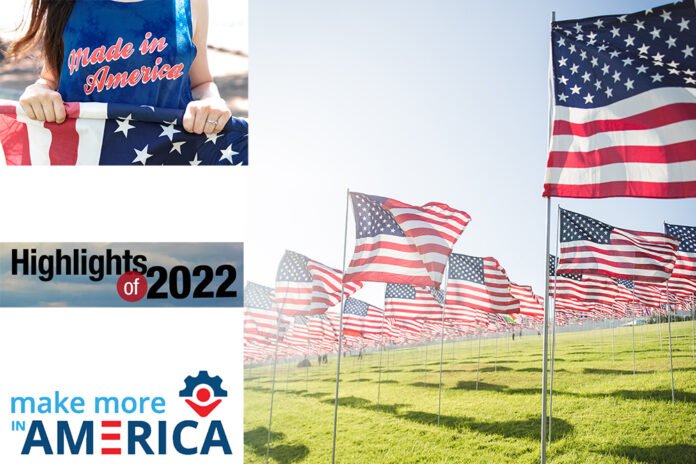The US administration made legislation in 2022 to accelerate decarbonization, promote sustainable environmental practices, strengthen international trade import laws, and launch the ‘Make More in America’ drive and facilitate the fashion apparel industry.
In the USTR in March 2022 announced to reinstate of 352 of 549 exclusions to reinstate previously granted and extended product exclusions in the China Section 301 Investigation till December 2022. Exim Bank’s board approved in April a new tool—the ‘Make More in America’ initiative—aimed at boosting US manufacturing, strengthening and closing critical supply chain gaps, and supporting American jobs.
“The Make More in America Initiative will create new financing opportunities that spur manufacturing in the United States, support American jobs, and boost America’s ability to compete with countries like China,” said Export-Import Bank of the United States President and Chair Reta Jo Lewis.
“The global pandemic and other recent events have exposed supply chain gaps in critical sectors like advanced manufacturing and renewable energy. EXIM’s Make More in America Initiative will be a key tool in tackling these issues, and it will ultimately help America manufacture more and export more.”
President Biden on December 23, 2021, signed Uyghur Forced Labor Prevention Act (UFLPA) into law. The law requires US companies to prove that goods imported from China’s Xinjiang are not made with forced labor, or else Customs and Border Protection can seize those.
The New York state governor Kathy Hochul announced a partnership with IMG to implement a $500,000 grant programme to assist small, independent fashion designers with grants of $50,000 each to offset certain costs of their New York Fashion Week show productions.
The US department of agriculture (USDA) in April committed $50 million to assist eligible apparel manufacturers of worsted wool suits, sport coats, pants, or Pima cotton dress shirts; Pima cotton spinners; and wool fabric manufacturers and wool spinners.
In August, several North Carolina-based educational institutions joined hands with the Central American Technological University in Honduras to educate and train students for the next-generation textile workforce to meet a rising tide of nearshoring and onshoring in Honduras, Central America, and the United States. In October, New York governor Kathy Hochul signed a piece of legislation to support the state’s textile industry through economic development programmes. The New York Textile Act helps connect farmers who produce plant or animal fibers with the textile industry.
New funding worth $189,000 was announced in November for Delaware Valley Industrial Resource Centre (DVIRC), an economic development business consulting firm, through Pennsylvania’s Manufacturing PA Training-to-Career programme to address the need for sewing machine operators in south-eastern Pennsylvania’s textile industry by creating a training collaborative.
The New York state senate passed a bill in May to prohibit the use of perfluoroalkyl and polyfluoroalkyl substances (PFAS), or ‘forever chemicals’, in apparel. New waste ban regulations that promote recycling and reuse, reduce trash disposal, and foster recycling business growth took effect starting November 1 in Massachusetts state.




